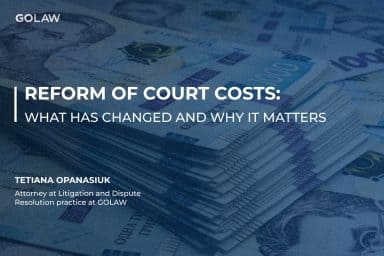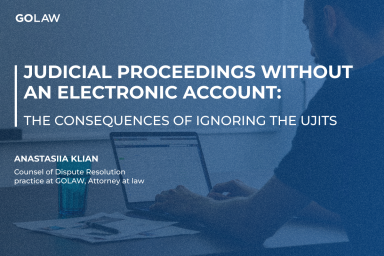Bankable PPA: A new version from the regulator
A power purchase agreement or PPA is one of the core documents needed for the purchase of electricity produced by a power plant.
A power purchase agreement or PPA is one of the core documents needed for the purchase of electricity produced by a power plant. Several years ago, when the production of “green” electricity (from renewable sources) began to gain momentum rapidly, the energy sector regulator came under pressure from both business and foreign investors to modify the out-of-date version of the PPA for “green” tariffs. Over the last couple years, there have been at least two significant efforts made by the regulator to make PPAs bankable and attractive to investors. Considering certain legislative, political and technical boundaries, the regulator has been unable to include in the document all of the suggestions from business. However, in line with the requirements of the structure of the new energy market, the regulator has developed a new standard version of a PPA that differs from the current template of a model agreement signed by a guaranteed buyer. It seems that business community and the regulator have come to a more or less mutual consensus over many of the conditions of the new PPA, although certain major points are still on the table.
Entry into force. The proposed draft makes it possible for a producer to conclude a PPA either after the commissioning of facilities and receiving the “green” tariff, or to conclude a so-called pre-PPA before the commissioning of the facilities and the receiving of the “green” tariff. In the first case, the PPA enters into force from the date of producer’s introduction to the register of producers under the “green” tariff. In the second case, the agreement enters into force after certain suspended conditions are met. This means that a pre-PPA can be signed by both parties before the commissioning of the facilities, but that it will enter into force only after the commissioning of the facilities and the receiving of the “green” tariff by the producer. This formulation was not what investors were hoping to see in the draft. In this connection, they approached the regulator with the suggestion that the pre-PPA should enter into force after its signing, but that certain provisions concerning the obligation of the guaranteed buyer to purchase electricity under the “green” tariff should come into force only after the producer fulfills the above-mentioned obligations. The attitude of the regulator to this issue appears to be rather straightforward – such a suggestion is not acceptable to the regulator, as it contradicts the Law on the electrical energy market.
Dispute resolution. The draft dispute resolution clause stipulates that any business entity (both with foreign investments and without) can use either court procedures in Ukraine, or arbitration procedures. Such an amendment is rather questionable, as it contradicts a direct provision of Ukrainian law, according to which a dispute can be subject to arbitration only if at least one party is an entity with foreign investments. That is why, we may assume that under certain circumstances the same dispute may undergo both arbitration and court proceeding in Ukraine. In any case, this clause, being one of the major amendments to the PPA, is still subject to quite robust discussion between the regulator, the guaranteed buyers and the business community. Obviously, it will be further changed.
Introduction of amendments to the PPA. The draft stipulates that in the case of changes being made to the legislation and/or in model PPA, the guaranteed buyer shall post such changes on their website and notify the producer of such changes. If within one month after the changes have come into force the producer does not initiate the procedure to terminate the PPA, it is understood that the producer has given their consent to the amended conditions. Such automatic changes of conditions in the PPA creates the situation in which producers can enter into a PPA under conditions that may be changed in future without the producer’s involvement. This uncertainty will make it more difficult for producers to access funding, although the regulator is making very visible efforts to accommodate most of the suggestions made by the business community.
It is clear that the regulator is, quite reasonably, unable to implement in the new typical PPA all of the most favorable conditions for business, but it can now certainly be said that there is greater understanding between the stakeholders.
This article was published in KyivPost newspaper exclusively

Sergiy Oberkovych
Senior Partner, Attorney at law
- Contacts
- 31/33 Kniaziv Ostrozkykh St, Zorianyi Business Center, Kyiv, Ukraine, 01010
- s.oberkovych@golaw.ua
- +380 44 581 1220
- Recognitions
- The Legal 500 EMEA 2023
- Who’s Who Legal 2022
- Lexology Index: Corporate Tax 2024
Sign up to be aware
New achievements are inspired by information. GO further, don’t miss out GOLAW news and legal alerts
Our expertise
-
- Antitrust and Competition
- Banking and Finance
- Compliance, Corporate Governance and Risk Management
- Corporate and M&A
- Criminal and White Collar Defence
- Defense in Anti-corruption procedures and regulations
- Labor and Employment
- Natural Resources and Environment
- Government Relations (GR)
- Insolvency and Corporate Recovery
- Intellectual property
- International trade
- Legal support of business and private Сlients in Germany
- Litigation and dispute resolution
- Private clients
- Real Estate and Construction
- Energy and Natural Resources
- Restructuring, Claims and Recoveries
- Martial Law
- Tax and Customs
-
- Agribusiness
- Aviation
- Chemical industry
- Engineering, Construction and Building Materials
- Natural Resources and Environment
- Financial institutions
- IT and AI
- Industry and manufacturing
- Healthcare industries, Life sciences and Pharmaceuticals
- Media, Entertainment, Sports and Gambling
- Retail, FMCG and E-Commerce
- Transport and Logistics
We use cookies to improve performance of our website and your user experience.
Cookies policy
Cookies settings







